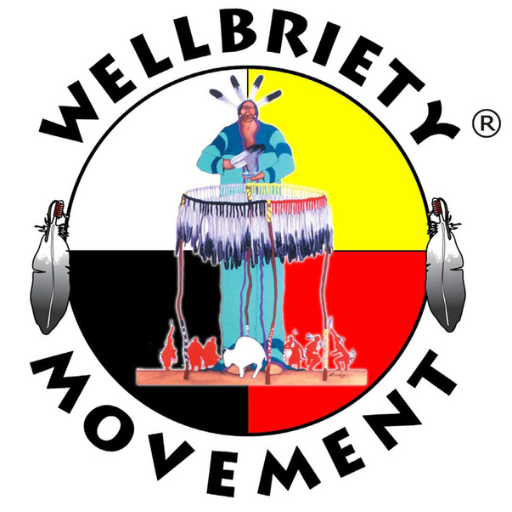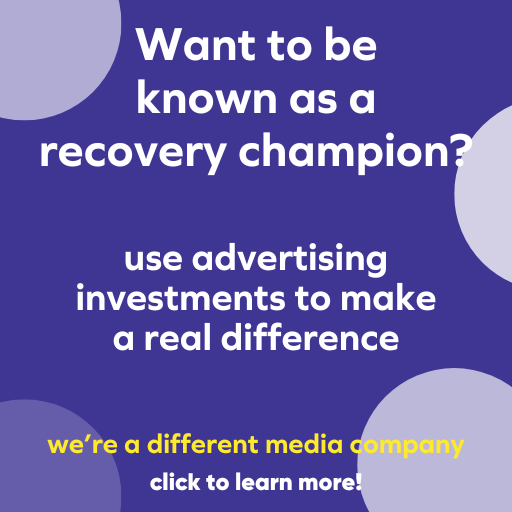Wellbriety is a culturally-based program that provides healing opportunities geared toward indigenous people. While it is a 12-step initiative, Wellbriety strives to help people heal from addictions by tapping into cultural and spiritual practices that may have been lost to many Native people along the way.
According to White Bison, Wellbriety’s parent organization, the ‘Well’ in Wellbriety pertains to the journey beyond sobriety, to a life of everyday wellness, healing, and community. Native culture and spirituality play a large part in achieving this state of recovery.
Angela’s Story of Wellbriety
Angela was born into the Sicangu Sioux Tribe in Rosebud, South Dakota. She was removed from the reservation as a child, and adopted by a Mormon family. One of only three children of color in her Maine community, she was ridiculed in elementary and junior high school.
“As a kid, I didn’t ask any questions,” she says. Because of the teasing she endured “My culture became a negative thing for me.”
Angela has been in recovery now for three and a half years. “In my recovery journey, I participated in a 12-step program, but I ended up feeling like something was missing in my life. I’ve always been missing the culture part of my life.”
That changed when she discovered Wellbriety. The Native cultural rituals became integral to her recovery. “I enjoyed cleansing my spirit, opening up to the Creator, and welcoming Wellbriety into my life,” she says.
The more she participated, the more clarity she achieved. “Getting into that spirituality part of my culture, I thought, maybe this is what I’ve been missing. Maybe this is it.”
Angela shares that it was a little unsettling when first walking through the gates of the Southern Maine’s Women’s Re-Entry Center due to her previous incarceration. However, upon visiting there she reminded herself that she was doing this for other women. She spoke about how it was “less about me and more about how my recovery journey can help other women.”
“I pray to my Creator, I attend Wellbriety meetings,” she shares with the women. “This is what works for me.” She talks about seeing hope in the women’s eyes and how it “makes it all worthwhile.”
“In my recovery journey I feel like I’m home. Recovery is a way of life for me now. I feel like that piece that has been missing for so long, I’ve finally found it. And I know beyond a doubt that it’s coming into Wellbriety that made it happen for me.”
Melody’s Story of Wellbriety
Melody had a very different experience growing up. Born in Nova Scotia, Melody was raised among her people, on the Eskasoni reservation in Cape Breton, the largest Mi’kmaq community in the world.
On her recovery journey, she “first heard about Wellbriety through an elder,” she says. “I grew up speaking my language and knowing the culture, so I connected to this in a deep way. I was instantly hooked.” In Wellbriety meetings, she says, “I feel comfortable. I can be myself. I don’t have to hide that I am Native.”
Melody describes the meetings as “a sacred circle, where everybody has a chance to smudge [the ritual of cleaning the energy of a physical space, object or person] to help get their energy going.” She also discusses the traditional use of a talking stick [allows for multiple people to speak in turn], to “…talk about nature, and the Great Spirit.”
“The meetings are pretty powerful,” she concludes. “You can feel the energy in the room.”
As a facilitator, Melody leads approximately 19 meetings each month, as well as working with the incarcerated population. She has talked to rehabilitation facilities about Wellbriety as far away as New Brunswick and Prince Edward Island. She proudly claims the title of “Firestarter,” which is the term White Bison assigns to those leading meetings.
“My dream would be to have Wellbriety in every county in Maine because it’s helped me so much.
It’s a sacred thing, especially growing up on a reservation, being with my elders, and going to powwows and knowing my culture. The more meetings we can start in Maine, the better,” Melody says. “I’m a Wellbriety warrior.”
For more information about Wellbriety, please visit whitebison.org
The White Bison Vision
Mission
White Bison is a Native American-operated 501(c)3 nonprofit dedicated to creating and sustaining a grassroots Wellbriety Movement — providing culturally-based healing to the next seven generations of Indigenous People.
The Wellbriety Movement
To be sober and well. That’s what White Bison wants for our community, that’s why we’re a proud facilitator of the Wellbriety Movement. We must find sobriety and recover from the harmful effects of drugs and alcohol.
To Go Beyond
The “Well” in Wellbriety is the inspiration to go on beyond sobriety and recovery, committing to a life of wellness and healing every day. Many use White Bison’s healing resource products, attend its learning circles, and volunteer their services to help themselves and others achieve wellness.
A Resource to the Community
White Bison offers sobriety, recovery, addiction prevention, and wellness/Wellbriety learning resources to the Native American/Alaska Native community nationwide. Our resources are also available to non-Native people.
White Bison’s Philosophy
- A set of Principles, Laws, and Values governs Mother Earth
- Leadership exists to serve the people first
- Leadership existence ensures Truth is given to the people
- Changes are the result of implementing Natural laws
- All Native people believe in a Supreme Being
- Elders and teachings are a guiding force to direct ourselves, our families, and our communities
- There is a natural order running the universe
- That our traditional ways were knowledgeable about the natural order
- When the community leads, the leaders will follow
- Alcohol and drugs are destroying us; we want to recover
- Change comes from within the individual, the family, and the community
- Within each person, family, and community is the innate knowledge for well-being
- The solution resides within each community
- Interconnectedness — it takes everyone to heal a community
- Healing will take place through the application of cultural and spiritual knowledge
- Alcohol, drugs, and domestic violence are all symptoms, not the cause. To “heal a community” it must deal with the cause
- The Circle and the Four Directions are the Teachers in the Four Laws of Change
- Change is from within
- For development to occur, it must be preceded by a vision
- A great learning must take place
- You must create a Healing Forest
- OUR CULTURE IS PREVENTION
whitebison.org • 1 (877) 871-1495





